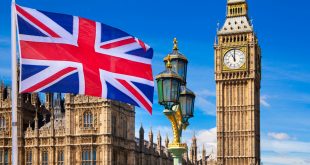With the launch of the Gambling Act review dominating the betting industry’s agenda last week, Regulus Partners observed that initial reactions suggest the government debate is off to a good start. Can betting remain on the government’s good list this year, or will the festive spirit be short-lived?
UK: In Parliament – the Great British Gambling Act Review – off to a good start
Perhaps it was the spirit of the season but this week’s parliamentary debates on the Gambling Act Review (launched on Tuesday) appeared remarkably consensual and grown-up.
On Tuesday, the Parliamentary Under-Secretary for Digital, Culture, Media and Sport Nigel Huddleston (Cons, Mid-Worcestershire) introduced the review of the Gambling Act to the House of Commons. His statement was followed up by questions and pseudo-questions from around 40 MPs from across the major parties, each with his or her own pet subject. One day later, it was the turn of the Lords in a rather shorter discussion.
The debates on the Gambling Act spanned a wide range of issues and revealed a more nuanced ‘view of Parliament’ than is commonly portrayed. While some parliamentarians urged tougher controls, others counselled against unnecessary restrictions on gambling consumers or expressed concern for the impact on sports or people’s livelihoods; while some argued for expedition in implementing tighter measures on the National Lottery, others quite justifiably fretted about the impact of any Lottery funding cuts on their constituents.
Loot boxes, the prevalence of gambling marketing (including advertising and sponsorship) and concerns over the rise of an unlicensed ‘black market’ were undoubtedly the common themes although the fitness of the Gambling Commission, the future of the National Lottery and threats to horseracing were also given high profile in the Gambling Act review.
Encouragingly, there were repeated calls for the review into the Gambling Act to be grounded in evidence, for it to give voice to a wide range of interested parties and for the Government to listen to ‘experts’. Of course, it is likely that each MP will have his or her own bias in selecting and interpreting the evidence as well as selection criteria for ‘expertise’ (a quality often defined by suitability of views). The Government will have its work cut out if this spirit of notionally honest endeavour is to survive into the New Year and the work of the review proper.
At a time of year when thoughts turn to wise men, it was left to Kevin Brennan (Lab, Cardiff West) to offer balance and sagacity, saying: “We all know that the gambling industry got it very wrong on the campaign on fixed-odds betting terminals. Does the Minister agree that this review is an opportunity for the British gambling industry to get it right and produce an outcome that maximises the fun for people who want to gamble, but minimises the harm? We all know that prohibition does not work; what we need is effective reform.”
The case for review and reform of gambling legislation is unarguable (and long overdue). The question is now whether reform is driven by a desire to institute more effective legislation and the shaping of a more ethical and sustainable market where the well-being of consumers is put first; or whether it will be an exercise in marginalisation.
There is a long way to go but the Government and Parliament have made a good start in approaching the review in a spirit of tolerance and honest enquiry. That is not to say that there are no dissenting voices. After all, ‘A Christmas Carol’ without Ebenezer Scrooge resembles just a heart-warming seasonal ad for Sainsbury’s. The Lord Bishop of St Albans seemed barely able to control his ire as he raged against the drafting of the review (“significant parts of this statement read as if they were written by the gambling industry”, frothed the Man of God) before suggesting that the recommendations of his own House of Lords Select Committee be implemented without delay or the need for further examination.
Although the Lord Bishop’s intentions are no doubt good, his words smacked of a rather medieval sense of entitlement. We are sure that he would find a warm welcome in any number of the countries around the world where the powers of Church and State remain entwined – but thankfully Great Britain is not one of them.
Peace and Goodwill to all.
US: Covid-19 responses – pandemic ‘or’ pandemonium
Major League Baseball has begun a lawsuit against its insurers (AIG, Factory Mutual and Interstate and Casualty), after their refusal to pay out on policies for property damage and business interruption. The league reduced its schedule by 1,500 matches, as well as running events without spectators, and cancelling all other non-baseball uses of its venues in response to the pandemic. The losses experienced by the MLB are reasonably estimated to be in the US$bns (annual revenue is typically c. US$10bn and nearly every form of revenue generation has been impacted: gate receipts, hospitality and rock concerts enormously, streaming with mitigation).
There are reportedly three issues to challenge in this matter: first, many insurance companies rely upon applicable exclusion clauses to avoid payout. The MLB acknowledge that there is an exclusion for ‘contamination’ which it defines as “any condition of property due to the actual presence of bacteria, virus, disease or illness causing agent.” The MLB asserts that COVID-19 is a communicable disease and therefore does not fit the terminology for virus, meaning that the league should receive compensation for losses in relation to its physical property.
Second, while its lawyers acknowledge the existence of this exclusion in relation to property damage, they do not recognise it to be applicable to business interruption and should compel the insurance companies to pay for “all risks of physical loss or damage.” In this case, the MLB believes that it is also entitled to insurance compensation for losses it has experienced through the interruption to business by being unable to run in a usual way.
Third, the other issue for judicial testing is the significance of ‘or’ in the ‘physical loss or damage’; ie, whether the policy does insure for both physical loss and damage, or for just one of those elements: a huge swing factor.
While it is understandable that MLB and other businesses which have lost out through the COVID-19 pandemic wish to try to recoup losses where they are entitled, it is also a very nervous time for insurers, who are also out to make huge losses as a result of responses to the pandemic. It does beg the question where ultimate liability for these losses lies. If the business has had to cease temporarily due to government-imposed restrictions, should it be the state which picks up the bill, insurance companies, or is it merely ‘one of those things’ which must be taken on the chin (ie, direct stakeholders in the capital structure take the hit, depending upon severity, and/or try to pass it on to consumers in the form of higher prices).
Whatever is decided, there is likely to be far reaching consequences for the organisation and insurance of large events and businesses, something which may require policy response for future outbreaks. The MLB’s case is likely to be one of many and the results could be profound. The biggest danger, however, is if arguing over who pays the cost of damages gets in the way of driving products and businesses forward in a ‘pandemic conscious’ future (we are likely to be many years way from being ‘post pandemic, even with a vaccine for this one, in our view). All businesses face this risk, but the disjointed, mass-spectator-led and ego-driven world of professional sport seems especially vulnerable.
Australia: AML – junk status?
Junkets are a key VIP-led traffic driver to Pacific-facing casinos, and it has been long understood that the cash-led, cross-border, directly unregulated, and sometimes evasive nature of their business model (especially viz. the Chinese government) means that there is relatively high risk in the system. Indeed, various exposes, real, exaggerated and imagined, have rumbled on for over a decade. In that context, AUSTRAC’s risk assessment findings are both unsurprising and staggering, in our view. The report demonstrates poorly handled endemic risk, that spills into dodgy KYC practices and even the potential for funnelling political donations. While far from being exclusively a Chinese flow, this is something the Australian and Chinese governments are likely to be very happy to see regulatory and enforcement collaboration on..
We believe that AUSTRAC’s findings are important on four levels:
Most important, an assumption that because a market is regulated it is well run is a dangerous one: visibility and accountability are key and without these the scale of problems and the likely scale of regulatory-political backlash can be justifiably profound
Second, with such systemic failings, it is hard to see how political intervention and/or swingeing regulatory counter-measures can be avoided: the counter-measures might be as appropriate as most hurried intervention, but it is hard to blame politicians or regulators for this when the industry has ‘let itself down’ so badly
Third, while in industry-terms not directly connected, this is hardly a positive backdrop for hoped-for liberalisation of products, especially online casino: some the best lobbyists for this may now be offside
Finally, there seems to be a broad pattern of throttling back the ‘easy’ gambling money that used to swill around the APAC region in the form of casino junkets, betting agent networks, and increasingly, direct B2C online specialists; this enforcement is proving increasingly joined-up up and effective, but it is fighting against massive and growing (especially online) demand: sharpening the risk-reward of tapping into Asian money is likely to be a growingly painful theme for businesses that are more visibly ‘exposed’ to the region.
Article edited by SBC from ‘Winning Post’ Sunday 13 December 2020 (click on the below logo to access a full unedited version)










